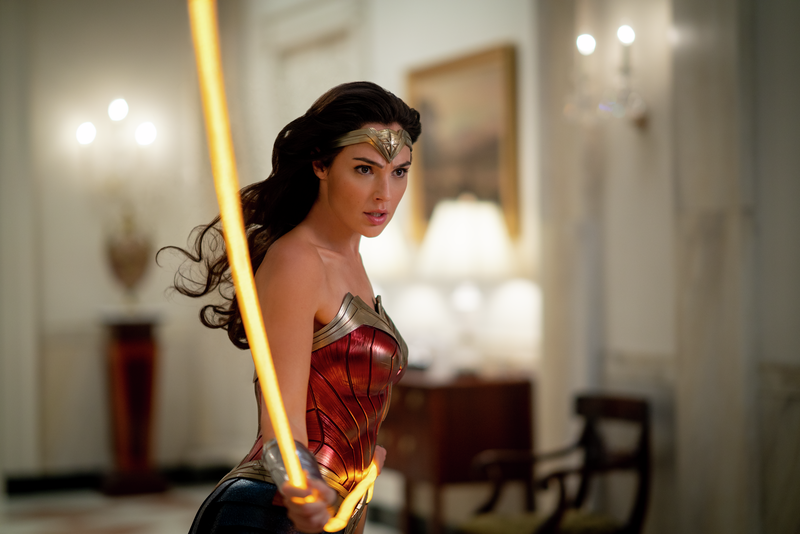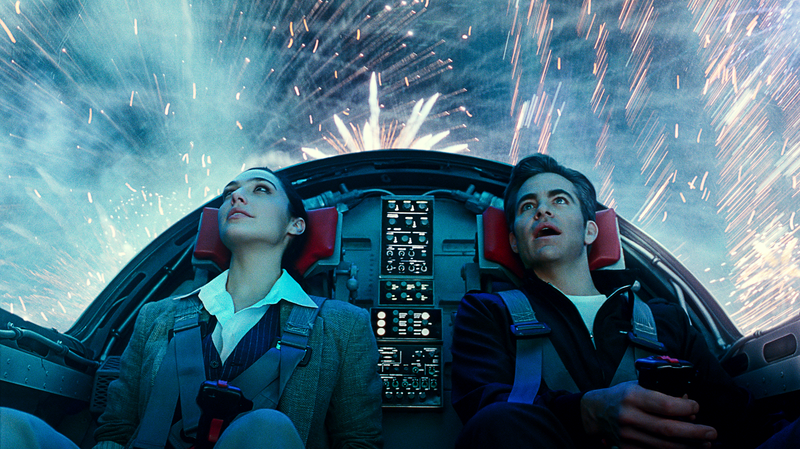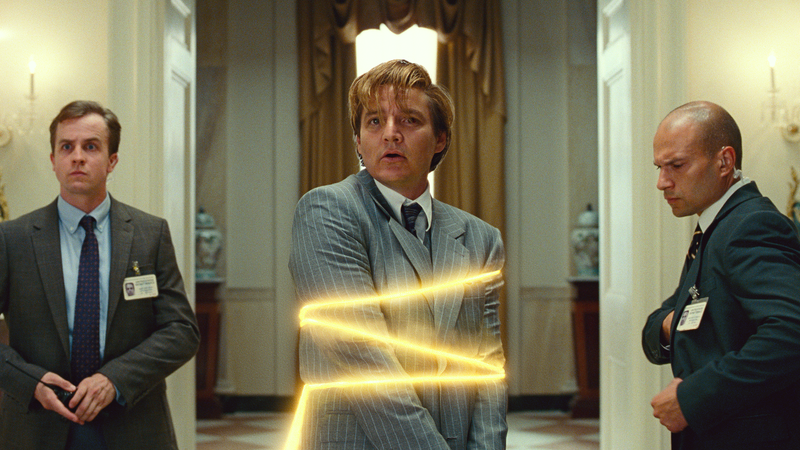After the success of Gal Gadot’s first outing as the ground-breaking heroine, Wonder Woman returns in a sequel that doesn’t pull its political punches, resulting in a somewhat clunky moral message being front and centre of this blockbuster.
With her last solo outing leaving her in 1918, Patty Jenkins’ explosive sequel picks up in 1984, where the immortal Diana is working in the Smithsonian museum in Washington DC, keeping her distance from humanity as she continues to mourn the loss of her wartime love Steve (Chris Pine). But when Diana’s shy new friend Barbara (Kristen Wiig) identifies a mysterious ancient artefact that can grant wishes, suddenly Diana’s world is turned upside down.

The artefact draws the attention of conspicuously blond TV personality businessman Maxwell Lord (Pedro Pascal), and as all the players chase their greatest desires, the lines become blurred as to who is in the right and who is in the wrong.
Wonder Woman 1984’s greatest triumph is in its complex antagonists, all too recognisable from our present day, and in true Wonder Woman fashion they are combated with understanding and compassion – a refreshing ethos-difference from most male-led superhero flicks.
That’s not to say there aren’t some jaw-dropping action sequences – from impressive practical wire-work stunts to Olympic-style feats of excellence and Cirque du Soleil inspired balletic fight scenes that bring a unique, retro energy to the film.

Gal Gadot is a statuesque presence at the centre of this film, but while the internal conflict Diana undergoes should be moving, she remains somewhat removed from the audience and difficult to connect with emotionally. This problem is balanced out by a warm and funny performance from Chris Pine, whose character must go through a complete role reversal from the first film: a fish out of water as Diana introduces him to a whole new world. This provides some much-needed levity in the two and a half hour run time.
The best performances are without out a doubt from Kristen Wiig and Pedro Pascal, who show us two very different sides of what a lust for power can look like and can lead to. Wiig utilises her comedy background, but also delivers an interesting portrait of desperation and drive, while Pascal camps up his usually serious dramatic roles and offers a classic comic-book style maniac without ever losing the heart of his character’s motivations.

While the film’s overarching message is one of faith in humanity, and a triumph of truth over lies and greed, it still does manage to fall into some unfortunate stereotypical pitfalls. Indian-American actor Ravi Patel is cast as a descendant of the ancient Mayans, native to South and Central America, and shown wearing dreadlocks – a bizarre mishmash of cultures that seems tasteless in a film otherwise trying very hard to get its message right.
There is also a trend of American action films relocating their heroes to desert countries populated by people of colour, so havoc can be wreaked there instead of on American soil, and WW84 falls into this trap by heading to Cairo and having Wonder Woman take down a string of Arab goons in the name of justice, despite things going wrong all over the world, America included.
The film becomes overstuffed towards the end, with montages that are too sentimental even for a Wonder Woman film, but the lasting message of good triumphing over evil is one that the world could do with right now, so maybe the sentimentality can be forgiven.
Wonder Woman 1984 releases in UK cinemas on 16 December
